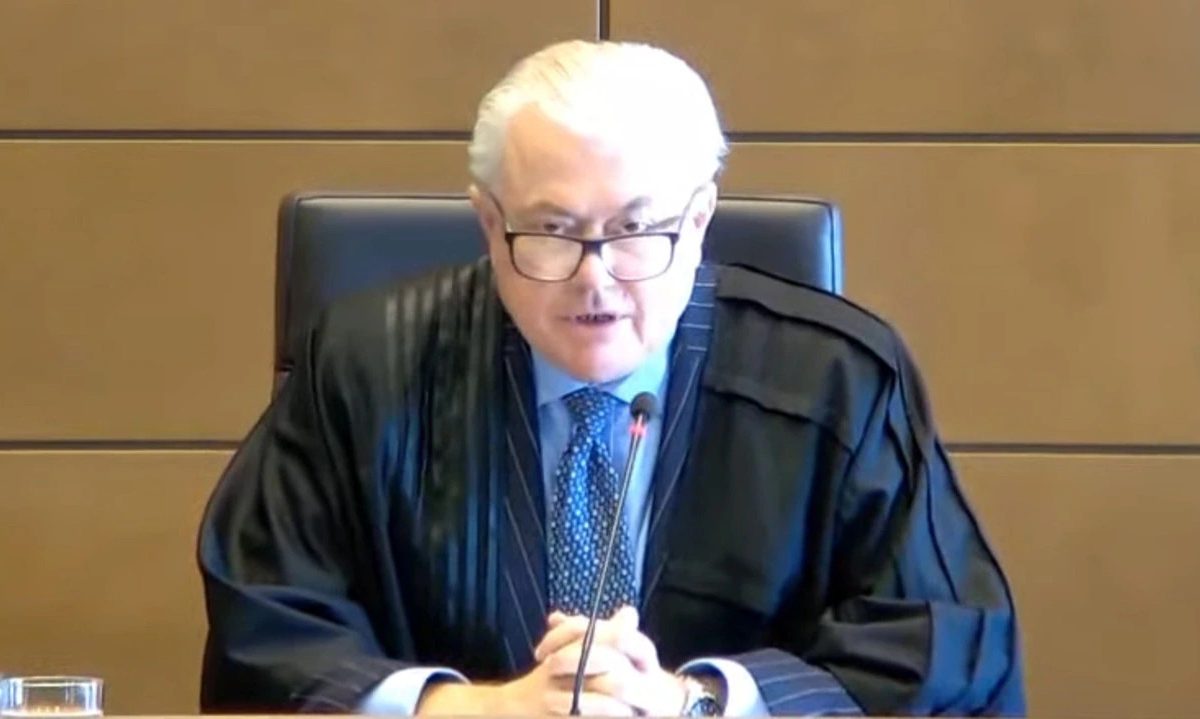“The Chief Minister has said the ‘heavy lifting’ relating to rates increases is over, yet at the same time saying increases will now only be eight per cent per year (units an average of 11 per cent). This would certainly see the prediction of a tripling of rates come true,” writes GARY PETHERBRIDGE
THE ACT government is seeking consultants to analyse the impacts of its tax reform program on Canberra residents and the property market, including rents.

Chief Minister Andrew Barr has consistently rejected the claims that the rate rises are harming many sections of the community, driving home buyers into NSW and increasing rents.
Rather, he argues that ratepayers have benefited from reductions in stamp duty and other taxes and charges.
The ACT Government Response (number 6), to the Legislative Assembly Rates Inquiry Recommendation for a Public Review of the ACT System for Rates and Land Tax, stated that analysis will be publicly available so it can be scrutinised and discussed by ratepayers and the broader Canberra community.
To honour this commitment and to ensure the review report’s credibility, the consultants need to publicly engage during the process and review much of the evidence included in the earlier Assembly Inquiry.
In addition to considering this evidence the consultants should be asked to consider the original 2012 ACT Taxation Review and the Government’s response to it and how the implementation is consistent with these recommendations.
I also understand the consultants haven’t been asked to look at whether the changes to the way rates are calculated for individual units within a strata complex have resulted in unreasonably excessive increases over the past few years; and to consider the suitability of incorporating market/capital value components into the approach.
Omission of this analysis would make credibility of the consultancy suspect.
Over recent years the ACT government’s record on public consultation has not been strong. Often requests to meet with ministers by executives of responsible associations with an interest in supporting the community on a variety of issues, or to assist in addressing serious issues within our community, have been ignored.
Many months ago the presidents of the Owners Corporation Network (ACT) and the Strata Community Australia (ACT) met with a senior member of the Treasurer’s office and during this meeting an offer to assist with the review now being arranged was discussed and welcomed. No more was heard of this.
The Assembly Inquiry provided a comprehensive opportunity to collect evidence of the personal impact on residents’ cost of living and health and welfare, and on comparing rating fairness and equity between units in various complexes, and between standalone housing and apartments/townhouses.
Gross disparity was evident and on the house-versus-unit comparison several examples showed a house and a unit with almost identical sale or rental value and the house using as much as four times the amount of land yet paying over 10 per cent less in rates.
For credibility the consultancy will need to address these issues and suggest changes to remove the inequities.
The 2012 Review and Response emphasised revenue neutrality, yet several respected past government treasury executives and a former Labor chief minister dispute this has happened.
Many senior residents accepted the government’s encouragement to downsize, paid the full stamp duty (in place at the time) and have now had the double hit of very high rates.
This double hit was not a clear objective of the Review although it did recognise this was a possible outcome in one of the options put forward.
The impact was to be mitigated through a range of complementary policies on housing affordability, rates being commensurate with the consumption of land, and concessions for those on low to moderate incomes.
The consultancy should review the success of the approach taken.
In the Response (number 4) to the Assembly Inquiry the government emphasised unimproved values are the basis for general rates and using this basis avoids undesirable outcomes such as disincentives for improvements and does not distort decisions regarding the use of land.
In the strata sector one undesirable consequence could be avoidance of essential common property maintenance. With the change in method for calculating the rates in the strata sector, the government is going against its own stated principle.
The rates calculation method now used takes the Entitlement Points (the measure of the market or capital value of each unit within the complex) not the land value (unimproved value) as the basis for their share of rates calculated for the complete complex. This aspect of rating together with how the overall method has created massive increases for unit owners (some well in excess of 100 per cent over a few years), needs to be considered by the consultants.
The consultants should also consider that these massive increases will reduce the willingness of senior people to downsize, move to in-fill locations and so reduce pressure on land usage in the ACT.
Recently the Chief Minister has said the “heavy lifting” relating to rates increases is over, yet at the same time saying increases will now only be eight per cent per year (units an average of 11 per cent).
This is still a massive increase for the next few years and would certainly see the prediction of a tripling of rates come true.
Unit prices in Canberra have already dropped significantly with off-plan purchase prices not being achieved in resales and some of these are forced because of various reasons including rates and land tax escalation and defect rectification costs.
Rental prices for units have now topped all capital cities in the country and this was predicted over a year ago as the rates and land tax hit their high levels. Affordability is well above our nearby NSW neighbours. The consultants have much to consider and report on if the review is to be credible.
Gary Petherbridge is the president of the Owners Corporation Network ACT, an organisation set up to help unit owners and owners corporations avoid problems.
Who can be trusted?
In a world of spin and confusion, there’s never been a more important time to support independent journalism in Canberra.
If you trust our work online and want to enforce the power of independent voices, I invite you to make a small contribution.
Every dollar of support is invested back into our journalism to help keep citynews.com.au strong and free.
Thank you,
Ian Meikle, editor





Leave a Reply